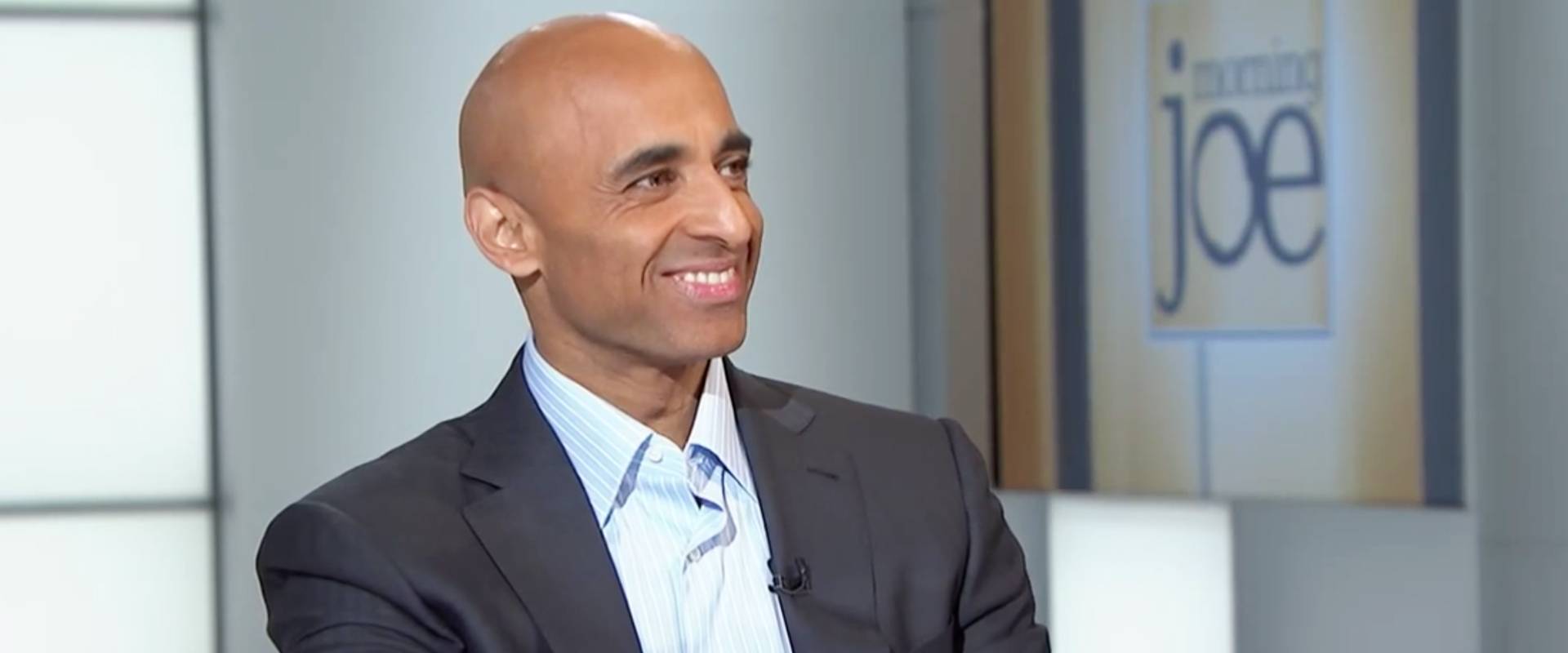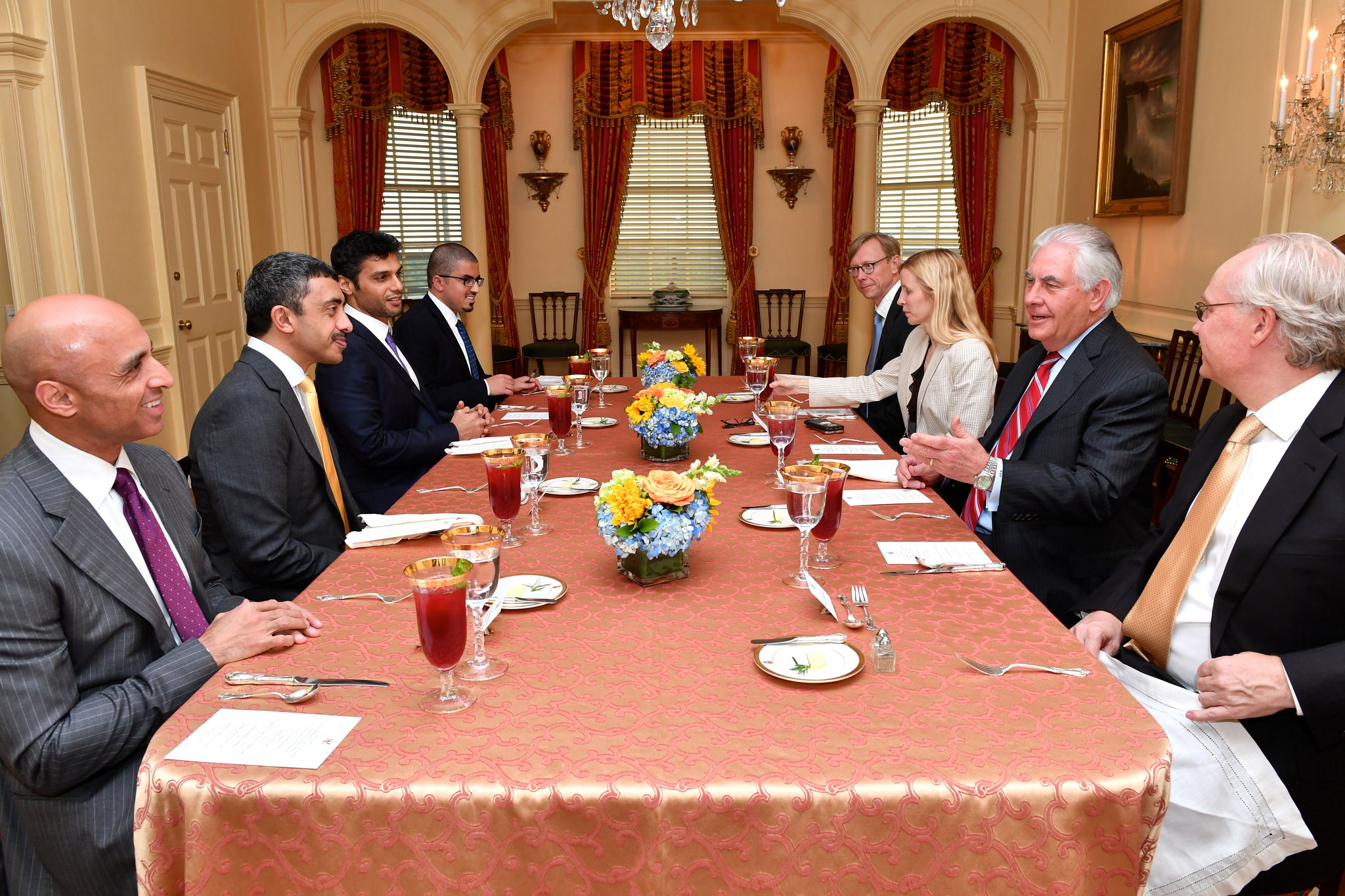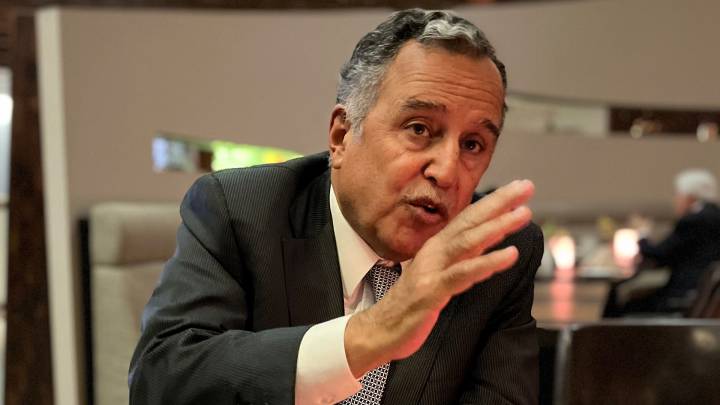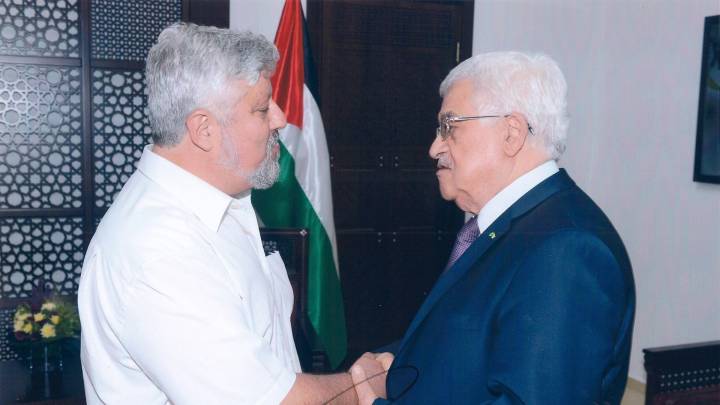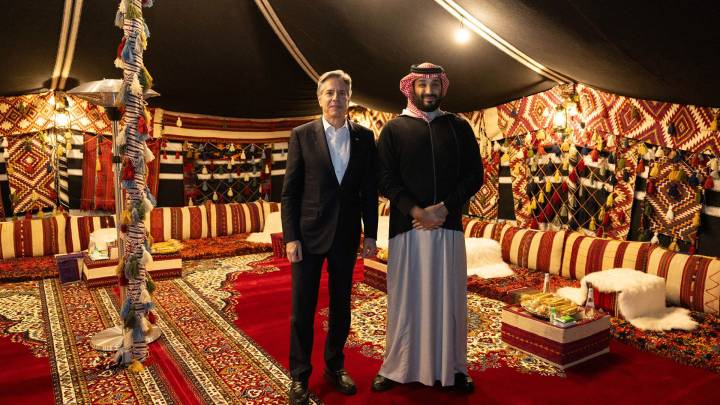Yousef Al Otaiba, the UAE ambassador to the United States, has rewritten the playbook on Middle East diplomacy in Washington.
While Yousef Al Otaiba likes to talk about his modest upbringing in Cairo, raised by a single mother, his family pedigree in the United Arab Emirates is not in question. His father, Mana Al Otaiba, is a former six-time president of OPEC and was an adviser to Zayed bin Sultan Al Nahyan, the founding father of the UAE.
There is a historical resonance with the present: Otaiba is now a key advisor to Sheikh Mohamed bin Zayed (MBZ), the crown prince of Abu Dhabi who is considered the de facto ruler of the UAE, given the ill health of his older half-brother, the president.
Otaiba worked as an advisor for MBZ, then the deputy supreme commander of the UAE Armed Forces, in the early 2000s. He distinguished himself, not least by convincing other Arab countries to back the US troop surge in Iraq in 2006. He also forged a close connection with MBZ.
This year will be notable in his future biography for the hack of his Hotmail account by a group calling itself GlobalLeaks
His big break came in 2008, when he was appointed UAE ambassador to Washington. This came in the wake of the 2006 Dubai Ports World fiasco, when the Dubai government-owned company was blocked from buying US ports after Democratic politicians stoked public fears about US port security and terrorism. It was a blunt message to the UAE’s leaders about their country’s problematic perception in the US. Otaiba was the solution, and he has since become one of the most formidable assets in the UAE’s foreign policy arsenal.
Well-spoken and charismatic – able to appear on Morning Joe to talk about the UAE’s female fighter pilots or its charity work – the ambassador is a convincing embodiment of the UAE’s message about the country: a key US friend in the Middle East, a practitioner of economic liberalism and moderate Islam, and an important ally in the war on terror. Otaiba goes so far as to call the UAE the leader of the war on terror in the Middle East, both militarily through its air strikes on ISIS, and culturally through measures such as increasing women’s rights at home.
His job has become even more important in the last few years as the UAE’s foreign policy has become bolder, most notably in its joining Saudi Arabia in the war on Yemen. Otaiba has worked to convince US officials and the general public this was a war that needed to be fought, despite the mounting humanitarian cost.
With the arrival of Trumpism, Otaiba’s importance – and his effectiveness – has gone up a gear. Many incoming officials – even the top one – are foreign policy tyros, more malleable to a close ally’s ideas about how to proceed in the Middle East (so close that Otaiba has even received temporary security clearances to attend classified meetings at the Pentagon).
And in short order, the UAE and close ally Saudi Arabia have moved to take advantage of the new US leadership style to take steps to try and remake the Middle East to their own liking. The crushing embargo on Qatar is meant to deracinate support for extremist terrorism as well as political Islam movements, the latter being the most potent threat to the GCC’s preferred flavour of political leadership in the Middle East, namely liberal (and illiberal) authoritarianism.
During the early days of the Qatar embargo, Otaiba made numerous media appearances to justify his country’s actions and accuse Qatar of harbouring terrorists. But perhaps higher on the agenda is the series of complex manoeuvres underway to assure the ascension of Mohammed bin Salman (MBS) to the Saudi throne (which now seems a fait accompli) and challenge Iran on a regional basis, including in Iraq, Lebanon, Syria and Yemen, actions for which the UAE-KSA alliance can count on US support, at least from the Trumpist factions.
Ambassador Otaiba has been a key state-side cheerleader for MBS, who is close to MBZ and is reported to have received advice from the Abu Dhabi crown prince about his route to the kingship. He is also close to Jared Kushner, the White House emissary to the Middle East, suggesting he has been able to play an important role in shaping the Trump administration’s thinking on the new-found muscle of the two GCC powers.
Meanwhile the UAE and KSA have been getting steadily closer with Israel, especially now that they agree on the most important thing: that Iran is a threat that must be combated. But there will never be popular Arab support for closer relations with Israel while the Palestinian issue remains unresolved, and whether Kushner can realise his goal of solving the impasse – with support of the UAE-KSA alliance and their petrodollar leverage on Israel’s neighbours, Egypt and Jordan – remains to be seen.
Otaiba’s high-flying ways have made him an obvious target, and this year will be notable in his future biography for the hack of his Hotmail account by a group calling itself GlobalLeaks.
Much of the information gleaned from the emails has been prosaic, or mainly of interest to insiders. What has been learned is that Otaiba has cooperated closely with the Foundation for the Defense of Democracy, a pro-Israel think-tank that is extremely hawkish on Iran; and that the diplomat – renowned in Washington for his lavish dinner parties and the embassy’s huge charitable donations – may be hiding a hard-partying past. The sordid details include heavy drinking, strip clubs and prostitutes, according to reporting by The Intercept.
One of Otaiba’s drinking buddies, Byron Fogan, went on to defraud an embassy-funded charitable foundation of more than a million dollars. After Fogan was arrested, Otaiba paid his legal bills and considered lobbying for charges to be dropped.
Nevertheless, the email leak doesn’t seem to have tarnished his shine: in November he was promoted to the rank of minister. And a taste for alcohol may not be a bad thing for a man promoting a view of moderate Islam in the US.
